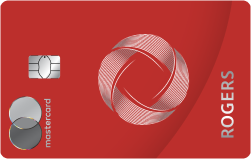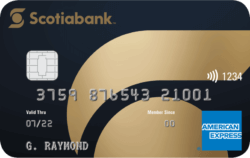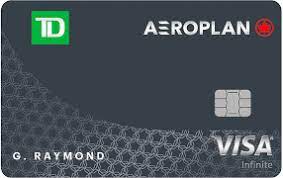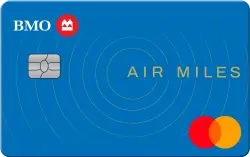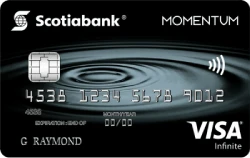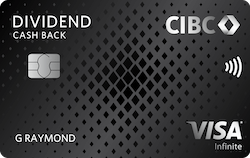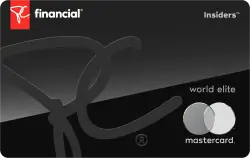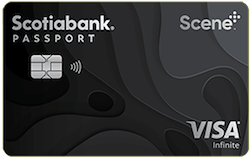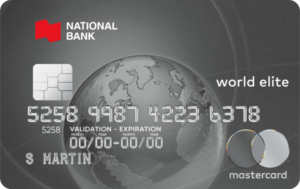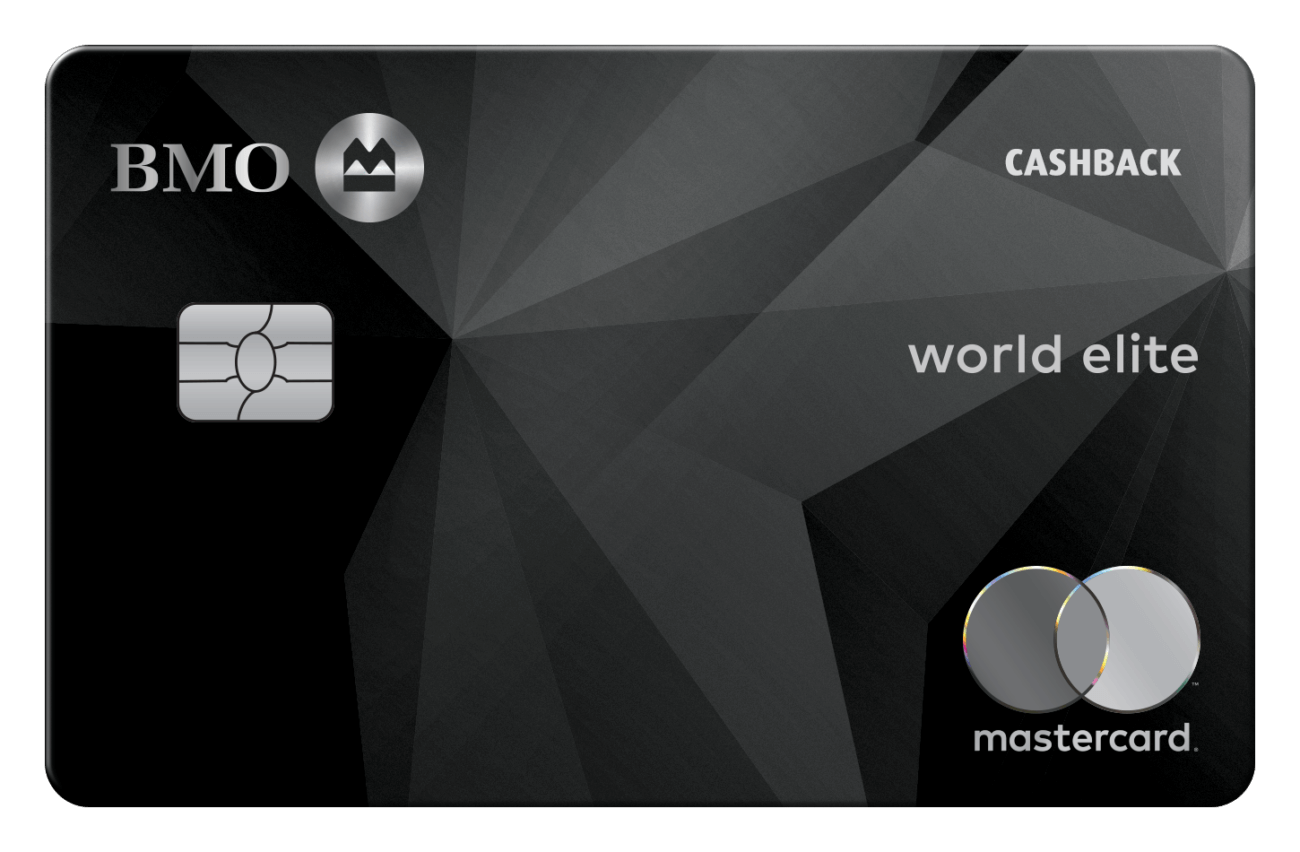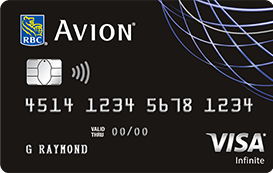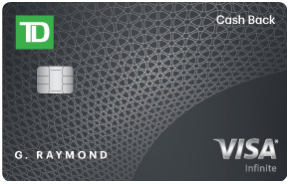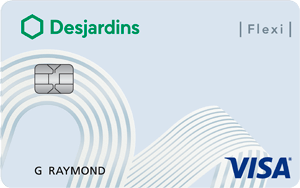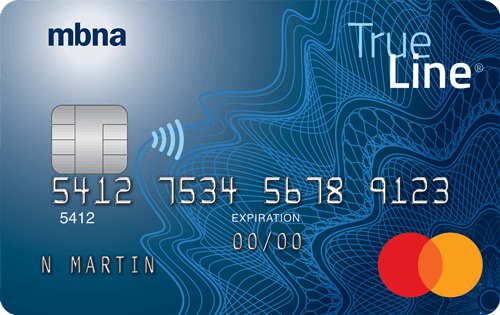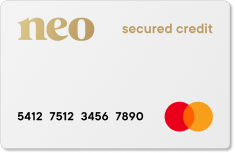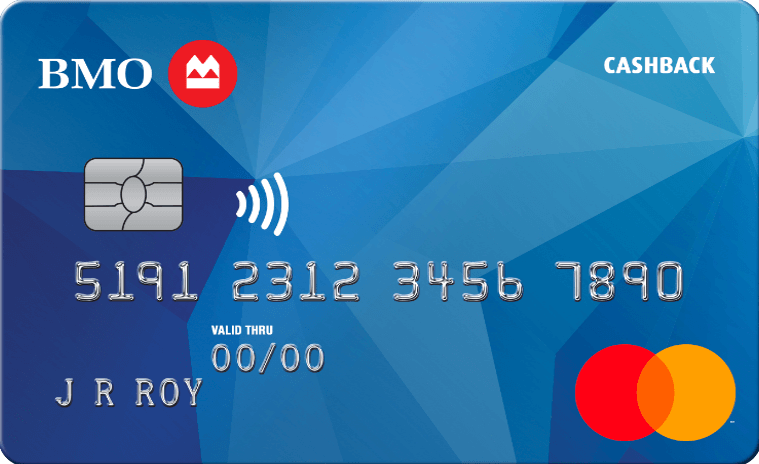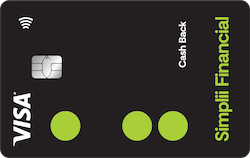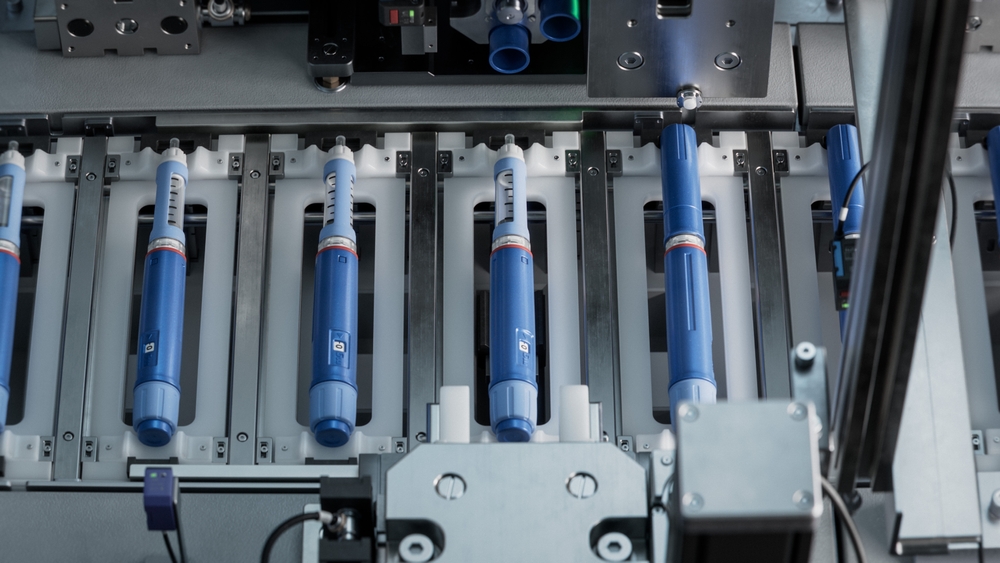Canadians have no shortage of options when it comes to selecting a new credit card. Whether you’re looking at a Visa, Mastercard, or Amex from a fintech, big bank, or credit union, we’re here to help you sort through all your choices.
To make it easier to find the best credit card for you, we’ve broken the best credit cards down based on the financial goals and categories they best align with. Once you’ve decided what you’re looking for from a new credit card, check out our top picks and apply today.
Compare popular credit cards in Canada
The best credit card depends on how you plan to use the card and what you’re hoping to get from it. For instance, someone who’s looking to score a lot of Aeroplan points might look for the best travel card option, while a balance transfer credit card might be the best for a person trying to pay down debt.
Take a moment to determine what you’re looking for in a credit card: cash back, premium perks, savings opportunities, or credit building. Then, use our interactive tool or read through our list of the best cards to find the one that suits your needs.
Best credit cards in Canada to earn rewards
Let’s start by looking at credit cards that earn you various rewards, from all-around cash back to travel, gas, and groceries.
Best cash back card: Rogers Red World Elite Mastercard
The Rogers Red World Elite Mastercard is truly the best cash back credit card in Canada, offering a high earn rate of 1.5% on all purchases, which means there’s no need to worry about maximizing bonus categories. The accelerated rate of 3% on all U.S. purchases is enough to cover foreign transaction fees. What’s more, this no-fee option also provides valuable travel perks, including airport lounge access, emergency medical, and trip cancellation insurance.
featured
Rogers Red World Elite Mastercard
Annual fee: $0
Welcome offer: None at this time.
Card details
Pros
Solid rewards: Earn 1.5% on all purchases in Canada. As a Mastercard, this is one of the best cards to use at Costco, which doesn’t accept Visa or American Express.
Rogers, Fido, and Shaw customers earn more: Customers get 2% cash back on all purchases (instead of the standard 1.5%). Plus, when they redeem cash back with Rogers, Fido, or Shaw, the rewards are worth 1.5 times more.
U.S. shopping bonus: Earn 3% cash back on U.S. currency purchases, easily offsetting the standard 2.5% foreign transaction fee.
No annual fee: This is uncommon for World Elite Mastercards in Canada.
Flexible redemptions: Redeem rewards against purchases on your card for as little as $10.
Cons
High income requirement: As a World Elite Mastercard, this card carries eligibility requirements that put it out of reach for some Canadians.
Best travel credit card in Canada: Scotiabank Gold American Express
The Scotiabank Gold American Express is the best travel credit card in Canada thanks to its impressive rewards program, comprehensive insurance package, and suite of travel perks, including no foreign transaction fees. The card includes a generous welcome bonus and allows you to redeem points for travel through Scene+ Travel, Powered by Expedia, or request statement credits to put towards travel purchased elsewhere.
featured
Scotiabank Gold American Express
Annual fee: $120
Welcome offer: Earn up to $1,050 in value in the first 12 months, including up to 50,000 bonus Scene+ points. Offer ends January 1, 2026.
Card details
Pros
Straightforward redemptions: Redeem for travel purchases through Scene+ Travel, Powered by Expedia, in increments of 100 points (valued at $1). There are no complicated rules or exceptions to manage.
Redeem points retroactively: Through the “apply points to travel” option, you can redeem your points for up to 12 months after you make a travel purchase.
Generous insurance package: This card includes 12 types of insurance coverage, including emergency medical (including for those over 65), travel accident, hotel burglary, and more.
No foreign transaction fees: Enjoy savings on foreign currency transactions when travelling or online shopping, since this card waives the usual 2.5% foreign transaction fee.
Basic eligibility requirements: You will need an income of $12,000 per year to qualify, making it accessible to most Canadians.
Cons
Fixed point redemption value: Although earning rates are high, points are always valued at 1 cent and cannot be transferred to airline frequent flyer programs.
No free airport lounge passes: While the card offers a discount on Priority Pass memberships for airport lounge access, it doesn’t include any free lounge visits.
Best rewards points credit card: Scotiabank Gold American Express
Yes, we’re listing the Scotiabank Gold Amex twice. Not only is it the best travel card, but it’s also the best if you want to earn rewards points. The card starts you with plenty of Scene+ points as a welcome bonus. From then on, you’ll earn 6 points per $1 at Sobeys, Safeway, and Freshco; 5 points per $1 on groceries, entertainment, and dining; 3 points per $1 on gas, streaming, and transit; and 1 point per $1 spent on everything else (including foreign currency purchases).
featured
Scotiabank Gold American Express
Annual fee: $120
Welcome offer: Earn up to $1,050 in value in the first 12 months, including up to 50,000 bonus Scene+ points. Offer ends January 1, 2026.
Card details
Pros
Variety of redemption options: You can redeem your points for high-value rewards, including movie tickets and concessions, dining at restaurants, shopping at Sobeys, travel, statement credits, Apple products, and merchandise.
Redeem points retroactively: Through the “apply points to travel” option, you can redeem your points for up to 12 months after you make a travel purchase.
Basic eligibility requirements: You will need an income of $12,000 per year to qualify, making it accessible to most Canadians.
Cons
Fixed point redemption value: Although earning rates are high, points are always valued at $0.01 and cannot be transferred to airline frequent flyer programs, unlike some other cards.
No free airport lounge access: While the card offers a discount on Priority Pass memberships for airport lounge access, it doesn’t include any free lounge visits.
Best Aeroplan card: TD Aeroplan Visa Infinite
If you frequently fly with Air Canada, consider the TD Aeroplan Visa Infinite—our pick for the best Aeroplan credit card in Canada. It comes with easy redemptions and extras like a $100 Nexus fee rebate every four years. As a welcome bonus, the Aeroplan Visa Infinite offers 10,000 Aeroplan points, and an additional 15,000 points if you spend $7,500 in the first 180 days after opening your account.
featured
TD Aeroplan Visa Infinite Card
Annual fee: $139 (waived first year)
Welcome offer: Earn up to $1,450 in value including up to 45,000 Aeroplan points could be yours. Plus, enjoy no annual fee for the first year. Conditions Apply.
Card details
Best Air Miles card: BMO Air Miles Mastercard
The no-fee BMO Air Miles Mastercard is the best option for casual Air Miles collectors. With decent rewards and a standard set of perks, this is a great entry-level card, especially for Canadians who participate in multiple loyalty programs and aren’t interested in paying an annual fee. The card comes with a nice Air Miles bonus and a steady earn rate, allowing you to earn even more miles when shopping with Air Miles partners.
featured
BMO Air Miles Mastercard
Annual fee: $0
Welcome offer: Get 1,600 Air Miles Bonus Miles. Plus, earn an additional 900 Bonus Miles when you spend $450 at eligible wholesale clubs, grocery stores or alcohol retailers! That’s enough for $250 towards purchases with Air Miles Cash.
Card details
Best grocery credit card: Scotiabank Momentum Visa Infinite
With the Scotiabank Momentum Visa Infinite, you’ll earn a healthy 4% on groceries and recurring bill payments, while transportation costs (including Uber) and gas earn at 2%. You’ll also earn 1% back on all other purchases. To get you started, this Scotia card gives you 10% cash back for the first 3 months (up to $2,000 in spending).
featured
Scotiabank Momentum Visa Infinite
Annual fee: $120
Welcome offer: Earn 10% cash back on all purchases for the first 3 months (up to $2,000 in total purchases). Offer ends April 30, 2026.
Card details
Pros
Well-rounded insurance package: Enjoy almost a dozen types of insurance coverage, including trip delay, baggage coverage, rental car coverage, and more.
Visa Infinite benefits: Get access to the Visa Luxury Hotel Collection, Visa Dining, and Wine tasting, all of which provide deals on exclusive accommodations and experiences.
Annual fee waiver: Sign up for the Scotiabank Ultimate Banking Package and Scotia will waive this card’s annual fee (a $120 value).
Cons
High income requirements: You’ll need either $60,000 personal or $100,000 household annual income to qualify.
Rewards are only available as statement credits: This card doesn’t allow you to choose how to redeem points. Instead, a cash back statement is issued to cardholders once per year.
Best gas credit card: CIBC Dividend Visa Infinite
The CIBC Dividend Visa Infinite offers unbeatable rewards for everyday spending, with up to 4% cash back on gas, EV charging, and groceries. With an additional 2% cash back on dining, transit, and recurring bills, plus 1% on everything else, this card delivers consistent rewards across categories. Plus, save up to 10 cents per litre at select gas stations with Journie Rewards. It’s the perfect card for anyone looking to save at the pump.
featured
CIBC Dividend Visa Infinite
Annual fee: $120 (rebated first year)
Welcome offer: Join and earn over up to $400 in value including a first year annual fee rebate. Offer not available to Quebec residents.
Card details
Best store credit card: PC World Elite Mastercard
The PC World Elite Mastercard earns you PC Optimum points faster when you shop at any of the Loblaw banner stores (Loblaws, No Frills, Superstore, Fortinos, etc.), Shoppers Drug Mart, and when you fill up at Esso and Mobil gas stations.
featured
PC Insiders World Elite Mastercard
Annual fee: $120
Welcome offer: earn a welcome offer* of 300,000 PC Optimum™ points with the NEW PC® Insiders World Elite® Mastercard®. Conditions apply. Offer ends December 31st, 2024.
Card details
Pros
Earn more at Loblaw banner stores: Rack up the equivalent of 4.5% cash back in PC Optimum points at Shoppers Drug Mart and 3% on groceries from Loblaws banner stores.
PC Optimum points are easy to understand: 10,000 points are equivalent to $10 redeemable in merchandise or a free car wash, or you can trade 4,000 points for 10 cents off per litre at Esso stations.
Includes basic insurance: The card comes with travel emergency medical insurance and rental car insurance.
Double up on points: You can stack points on points by using your credit card to pay for personalized offers from the PC Optimum app, in-store points offers, and/or flyers.
Cons
No free gas reward: Although you can earn points at Esso and Mobil gas stations, you can’t redeem points for free gas.
High income requirement: The minimum annual income requirement of $80,000 for an individual (or $150,000 as a household) may make the card inaccessible to some Canadians.
Minimum spending requirement: You must spend a minimum of $15,000 annually to maintain this account. If you don’t, you will automatically be considered for a different PC card.
Best credit cards in Canada for perks and benefits
If you’re looking for a specific credit card benefit or feature, check out some of the perks and benefits that make these cards shine.
Best no-foreign transaction fee card: Scotiabank Gold American Express
With an impressive earn rate—especially on groceries, dining, and entertainment—plus a comprehensive insurance coverage package, the Scotiabank Gold American Express is not only the best no foreign transaction fee credit card, but also one of the best overall travel credit cards in Canada. The card earns Scene+ points, which you can redeem for travel, movie tickets or concessions, groceries, gift cards, statement credits, and more.
featured
Scotiabank Gold American Express
Annual fee: $120
Welcome offer: Earn up to $1,050 in value in the first 12 months, including up to 50,000 bonus Scene+ points. Offer ends January 1, 2026.
Card details
Pros
Excellent rewards: Earn up to 6 points on groceries and 5 points for every $1 spent on dining, food delivery, and entertainment—among the best reward rates for these categories. You’ll also earn 3 points per $1 on gas, transit, and streaming services.
Long travel redemption window: Through the “apply points to travel” option, you can redeem your points retroactively for up to 12 months after you make a travel purchase.
Comprehensive insurance benefits: The card offers robust travel insurance coverage, including $1 million in medical travel insurance valid for up to 25 days.
Low income requirements: You only need an income of $12,000 per year to qualify for the card, making it accessible to most Canadians, although you’ll still need a good credit score.
Cons
No free lounge passes: While the card offers a discount on Priority Pass memberships for airport lounge access, it doesn’t include any free visits.
Fewer points on foreign purchases: Purchases in a foreign currency earn at the base rate of 1 point per $1 spent.
Best airport lounge access card: Scotiabank Passport Visa Infinite
With six complimentary airport lounge visits a year as part of the Visa Airport Companion program, the Scotiabank Passport Visa Infinite Card offers the most free visits among credit cards in a comparable fee range. With Visa Airport Companion membership, you’ll have access to over 1,200 airport lounges around the world. Plus, the card provides additional travel perks like no foreign transaction fees and a solid travel insurance package.
featured
Scotiabank Passport Visa Infinite
Annual fee: $150
Welcome offer: Earn up to $1,350 in value in the first 12 months, including up to 45,000 bonus Scene+ points. Offer ends January 1, 2026.
Card details
Pros
Airport lounge access: This card comes with complimentary Visa Airport Companion membership and six lounge passes per year, the most free visits of any travel credit card in a similar fee range.
No FX fees: You won’t be charged a foreign transaction fee on purchases made in international currencies.
Good travel insurance: Get emergency medical insurance for up to 25 days (for those under 65 years of age), plus trip cancellation, flight delay, lost baggage, rental car insurance, and more.
Cons
Limited earning potential: The points earned in categories, such as dining and entertainment, are valued at less than what you might get from other cards.
Fixed point value: Travel points are always valued at one cent each, and unlike some other credit cards, you can’t transfer points to airline loyalty programs.
High annual fee: The $150 annual fee is steeper than that of some similar credit cards.
Best travel insurance credit card: National Bank World Elite Mastercard
Not only does the National Bank World Elite Mastercard offer a wide range of insurance—from emergency medical to trip cancellation, baggage delay, and car rental insurance—but the actual coverage amounts are impressive. Most notable is the extended duration of emergency medical coverage, including for seniors aged 65 and older. Although the card doesn’t come with a welcome bonus, you will enjoy an annual $150 travel credit.
sponsored
National Bank World Elite Mastercard
Annual fee: $150
Interest rates: 20.99% on purchases, 22.49% balance transfers and cash advances
Earn rate: Up to 5 points per $1 on grocery and restaurant purchases; 2 points per $1 on gas, EV charges, recurring bill payments and travel booked through À La Carte Rewards; and 1 point per $1 on all other purchases.
Welcome offer: Earn up to 45,000 points. Until Oct. 31, 2025, get a $50 cash back bonus.
Annual income requirement: Personal income of $80,000 or household income of $150,000
Pros
Length of emergency medical coverage: Get $5 million in emergency medical coverage for trips of up to 60 days, which is three times longer than many other top-tier travel insurance cards. Canadians ages 65 to 75 are covered for up to 15 days (typically, coverage is for 3 to 5 days).
Coverage for travel inconveniences: Comes with above-average trip cancellation coverage of $2,500 and trip interruption coverage of $5,000.
Annual fee: While higher than the average cost of $120, the $150 annual fee is much lower than most premium cards with comparable or lesser insurance packages.
Airport lounge access: Cardholders have unlimited access to the National Bank Lounge at the Pierre Elliott Trudeau Airport in Montreal in addition to a Mastercard Travel Pass membership.
Cons
No travel accident coverage: You’re not covered for injuries that occur while travelling on a common carrier, such as an airplane or train.
High income requirements: As with other World Elite Mastercards, the eligibility requirements may be difficult to meet: a gross annual income of $80,000 for individuals or $150,000 for households, $400,000 in investable assets, or an annual spend of $25,000 on the card itself.
No welcome bonus: For a card that charges a premium fee, it’s surprising that you don’t earn even a little welcome bonus.
Best car rental insurance card: BMO CashBack World Elite Mastercard
The BMO CashBack World Elite Mastercard has a solid variety of extra-earn categories that are targeted to where Canadians spend the most, like groceries, transit, and gas. It’s also one of the few cards that offers free roadside assistance. However, this card really shines when it comes to rental car insurance coverage, offering a high limit of $200,000 with a rental car accident policy. You’ll also get $1,000 in rental car personal effects coverage.
featured
BMO CashBack World Elite Mastercard
Annual fee: $120 (waived first year)
Welcome offer: Earn up to $335 in additional cash back, including 10% cash back during your first 3 months.
Card details
Best mobile device insurance card: RBC Avion Visa Infinite
The RBC Avion Visa Infinite is a premium travel credit card that has a flexible rewards program and exclusive benefits. More importantly, it has the highest coverage limit for mobile device insurance of any Canadian credit card. You’ll enjoy $1,500 in mobile device insurance coverage (compared to the typical $500–$1,000 limit).
featured
RBC Avion Visa Infinite
Annual fee: $120
Welcome offer: Earn up to 55,000 Avion points ($1,100 value) upon approval.
Card details
Best roadside assistance card: TD Cash Back Visa Infinite Card
Cardholders are automatically enrolled as Deluxe members in the TD Auto Club, which entitles you to 24/7 complimentary roadside assistance services. This coverage handles roadside emergencies like dead batteries, flat tires, or breakdowns. As a Deluxe member, you’ll have access to a tow to the nearest service centre (up to 200 kilometres), emergency transportation, and even financial reimbursement for food and rest expenses up to $200 in case you’re stranded due to a vehicle-related issue. Similar assistance packages typically cost between $69 and $100 on a stand-alone basis.
featured
TD Cash Back Visa Infinite Card
Annual fee: $139 (rebated first year)
Welcome offer: Earn up to $600 in value, including 10% cash back on eligible purchases during the first three months (on up to $3,500 in purchases). Conditions apply.
Card details
Best credit cards in Canada to save on interest
If you’re looking for a new credit card with the expectation that you’ll carry a balance between months, it’s essential to find a card with the lowest interest rate possible.
Best low interest credit card: Desjardins Flexi Visa
If you know you’ll be carrying a credit card balance from month to month, you want a card with a low interest rate. Fortunately, the Flexi Visa from Desjardins Credit Union offers a low standard interest rate of 10.90% on purchases and 12.90% on cash advances—the lowest in Canada for a no-fee credit card. Plus, the card includes some travel insurance, select rental car discounts, and mobile device insurance—perks typically only found with annual-fee cards.
Desjardins Flexi Visa
Annual fee: $0
Rewards: Does not offer rewards.
Welcome offer: None at this time.
Card details
Pros
Lowest interest rate available: The Flexi Visa has the lowest purchase APR of any no-fee card in Canada.
Travel insurance included: This card comes with emergency medical, trip cancellation, and baggage coverage for up to three days—suitable for a weekend trip. Plus, the emergency medical coverage applies to travellers age 75 and under, whereas coverage stops at 65 with some cards.
No annual fee or income requirements: You don’t have to pay anything for the privilege of using this card—but be aware that you still have to meet credit score requirements.
Cons
Interest rates may increase: If you fail to make your minimum payment on time, the interest rate for both purchases and cash advances goes up to 19.99%.
No rewards: You won’t earn rewards on your purchases, but if you know you’ll be carrying a balance, the lower interest rates are the way you’ll save money with this card.
No balance transfer promotion: If your goal is to pay off a current credit card balance fast, consider a card with a balance transfer promotion instead. The Flexi Visa doesn’t charge a balance transfer fee, however, which is a plus for those who decide to transfer anyway.
Limited in-person support: Desjardins only offers brick-and-mortar branches in Ontario and Quebec.
Best balance transfer credit card: MBNA True Line Mastercard
For balance transfers, our pick is the MBNA True Line Mastercard. It provides a lot of breathing room for paying down debt: 12 months of 0% interest on balance transfers completed within 90 days of opening your account. There is a small 3% fee when you make the transfer, but you’ll have a full year to pay down debt.
featured
MBNA True Line Mastercard
Annual fee: $0
Balance transfer offer: Receive a 0% interest rate for 12 months on balance transfers completed within 90 days. (Offer not available for residents of Quebec.)
Card details
Best credit cards in Canada to establish or rebuild credit
For some, credit cards are the key to rewards and lifestyle perks. For others, a credit card is a tool to build, establish, or rebuild credit. If that’s you, consider the options below.
Best secured credit card: Secured Neo Mastercard
Secured credit cards may seem lacklustre compared to premium unsecured cards that offer things like rewards and insurance. However, the Secured Neo Mastercard provides an opportunity to earn cash back rewards—a rare perk for a secured card. Additionally, the minimum deposit requirement is only $50, making it highly accessible to many Canadians who would otherwise be unable to access credit.
featured
Secured Neo Mastercard
Annual fee: $96 ($7.99/month)
Rewards: 1% cashback on gas & groceries, plus up to 15% back at over 10,000 Neo partners across Canada
Welcome offer: None at this time
Card details
Pros
Cash back on purchases: You can earn cash back on gas, groceries, and purchases made at Neo’s partner businesses.
Low deposit requirement: With a minimum deposit of just $50, this card is accessible to most people, whereas many other secured cards require a deposit of $500 or more.
Customizable rewards: For a monthly fee, you can subscribe to Neo’s Perks program, which offers extra rewards on spending and additional benefits, including airport lounge access.
Cons
Annual fee: If you’re looking for a card to establish or rebuild credit, you may not want to add a $60 annual credit card fee to your budget.
Potentially high interest rates: Based on your credit profile, your interest rate may be as high as 29.99% on purchases and 31.99% on cash advances, which is steeper than the rates of other secured cards.
Limited cash back potential: There is a cap on how much cash back you can earn, which may not be ideal for heavy spenders.
Best student credit card: BMO CashBack Mastercard
The BMO CashBack Mastercard is a top choice for students looking for easy cash-back earnings. Combining no annual fee with an impressive 3% cash back rate on grocery purchases, this card offers students a chance to earn cash rewards in a high-spend category.
featured
BMO CashBack Mastercard
Annual fee: $0
Welcome offer: Earn up to 5% cash back during your first three months.
Card details
Best newcomer credit card: Simplii Financial Cash Back Visa
The Simplii Financial Cash Back Visa is ideal for newcomers to Canada, allowing you to apply without a Canadian credit history through the New to Canada Banking Program. It offers 4% cash back on dining and 1.5% on essential purchases, such as groceries and gas. With no annual fee and a low income requirement, this card is accessible to many new arrivals seeking to build credit while earning rewards.
featured
Simplii Financial Cash Back Visa
Annual fee: No annual fee
Welcome offer: Earn up to 10% cash back for your first 3 months (on the first $1,000 in purchases). Terms and conditions apply. (Not available for residents of Quebec.)
Card details
Reddit reviews: Which credit cards do Canadians love?
Reading through our list of best credit cards can be a good starting point in choosing a new credit card, but it also helps to get recommendations from real cardholders. We turned to Reddit to see which cards people are loving right now.
As for the best no-fee credit card, these cardholders agreed with our favourite card:


If you’ve ever checked Reddit threads for credit card recommendations, you’ll often see the American Express Cobalt pop up. However, as this user pointed out, the Scotiabank Gold Amex (our pick for rewards points) is actually a better option:

Ultimately, the best credit card for you depends on your spending habits and what you want the credit card to deliver.
How credit cards work
When you use a credit card in Canada, you’re essentially taking out a short-term loan with a balance that comes due every month. As you pay off your balance, the credit available to you the following month starts to go back up to the maximum credit limit on your card.
There are many ways you can use a credit card in Canada and internationally. For example, you can use a credit card to pay for goods and services, transfer existing credit card debt, or get a cash advance. As useful as these are, it’s important to understand responsible credit card use, which can keep your credit score in great shape so you qualify for better loans and interest rates in the future.
How does credit card interest work?
When you read your card’s terms and interest rates, you’ll see the interest expressed as an annual percentage rate (APR). Though APRs are expressed in annual terms, credit card interest is calculated daily and charged monthly. (The APR represents the total cost of borrowing money for a year.) You can figure out your daily interest rate by dividing your APR by 365—or 366 during a leap year.
If you keep a credit card balance from month to month, your purchases will be charged interest every day, which can really add up. Let’s take a look at an example using a card with a 19.99% APR:
Your daily rate is 0.0548%
A $1,000 balance would be charged $0.54 in interest charges in a single day
This interest compounds daily—the next day (assuming you don’t make any additional purchases), you’d be charged interest on a total of $1,000.54, and so on
As you can see, it’s best to pay down your debt as quickly as possible to avoid taking on ballooning interest fees.
Get free MoneySense financial tips, news & advice in your inbox.
Pros and cons of credit cards
When used responsibly, credit cards can be a key component in a healthy financial toolkit. However, if you struggle to stay on top of payments or within your credit limit, credit cards may not be worth it.
Pros
Credit cards have wide acceptance and are easy to use. Whether you’re shopping online or in person, most merchants accept credit cards, which also means you don’t have to carry cash.
You can earn rewards for everyday purchases. Depending on the credit card, you might earn miles towards travel rewards or points that you can redeem for cash back, merchandise, or gift cards.
Responsible credit card use builds your credit score. Paying your credit card in full and on time every month does wonders for your credit score, which can help you score low interest rates on loan products down the road.
Cons
You’ll damage your score if you miss payments. If you can’t pay off your card in full, you should at least make the minimum payment or your credit score will drop.
It’s easy to spend more money than you have. Credit cards make it almost too easy to buy things, so you might find yourself with a bigger bill than you expected, especially if you carry a balance and are charged interest.
You’ll be charged fees if you carry a balance. You might find it harder to pay off the charges to your card once interest is added. Plus, you might have to pay an annual fee to use the card and you may be hit with overlimit fees if you charge over your credit limit.
How to choose the right credit card for you
When Canadians shop around for a new credit card, they typically have one of four goals in mind: earn rewards, access perks, save on interest, or establish or rebuild credit.
Before you apply for a card, take a moment to think about what you want to get out of the card and what you plan to use the card for. Asking yourself the following questions can narrow your credit card choices:
Do you want a credit card that offers rewards? These give cash back or travel points and are most suitable for Canadians who frequently use credit cards but don’t usually carry a balance.
Would you rather earn points or cash back? A points card is best for those who travel often and see value in rewards for flights, hotels or other travel perks. A cash back card is typically more straightforward, offering a percentage of your spending on the card back as cash, which can be redeemed for credit or deposited into your bank account.
Are you willing to pay for a premium credit card? Premium cards often have high annual fees and income requirements, but they tend to have more benefits, higher earn rates, and more distinctive perks than no-fee or conventional cards.
Are you looking for a credit card with a specific perk? For instance, if you travel abroad, you might want a card that charges no foreign transaction fees or includes great travel insurance. Other potential perks include airport lounge access; priority boarding and free checked bags on flights; dining and travel credits; concierge services; and exclusive access to concerts, presale tickets, private experiences, and more.
Do you plan on keeping a credit card balance? Be honest when answering this one. If you fully expect to have a balance, you’ll want to prioritize a low-interest card so you don’t pay more interest than you need to.
Are you planning on transferring credit card debt? You can take advantage of a balance transfer credit card’s promotional rate, which typically allows you to transfer your existing credit card debt to the new card at an extra-low interest rate (sometimes 0%) for a limited time. Be aware that this is only possible with cards from different issuers.
Do you want to build your credit score? Whether you’re a student, newcomer, or just new to credit, you might struggle to get approved for an unsecured card. To help build your credit, look into getting a secured credit card to start out. You make a deposit, which becomes your credit limit, and your regular payments are reported to the credit monitoring bureaus, boosting your score over time.
Find the perfect card with CardFinder
In under 60 seconds, get matched with a personalized list of the best credit cards based on your spending personality and approval likelihood. No SIN required.


